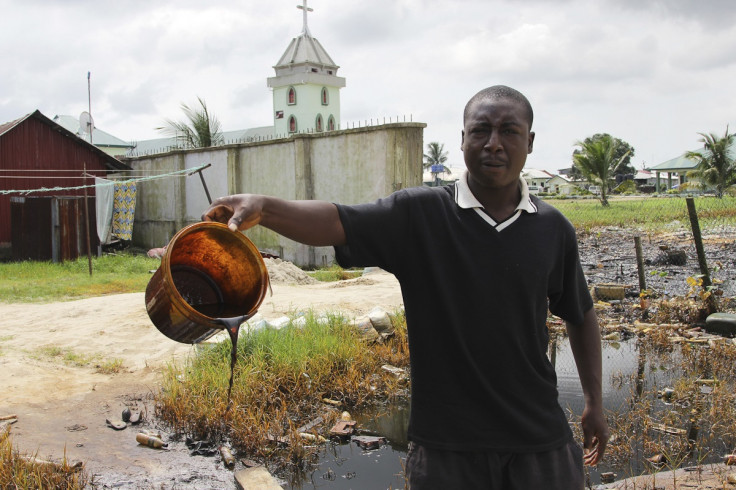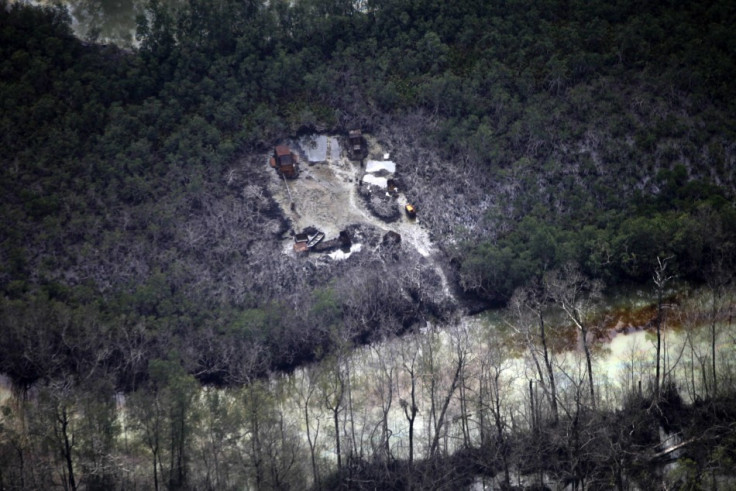Shell wins UK High Court battle on Niger Delta pollution claims
UK court ruled that Nigerian communities devastated by oil spills cannot have claims against Shell heard in UK.

A UK High Court has ruled on 26 January that two Niger Delta communities devastated by oil spills cannot have their claims against oil giant Shell heard in the UK.
Two Nigerian communities brought separate legal actions against Royal Dutch Shell and its Nigerian subsidiary, Shell Petroleum Development Company of Nigeria Ltd in 2016. The first claim was brought on behalf of 2,335 people from the Bille Kingdom, a fishing community whose environment has been devastated by oil spills since 2011. The second claim was on behalf of the 40,000-strong Ogale community in Ogoniland, who has faced repeated oil spills from Shell's pipelines on its land, which are yet to be cleaned up.
On Thursday, Anglo-Dutch company Royal Dutch Shell succeeded in a High Court battle to block claims brought against it by more than 40,000 Nigerians from being heard by the English courts.
Mr Justice Fraser ruled that Royal Dutch Shell cannot be held responsible for the actions of its Nigerian subsidiary after the firm disputed the fact it has significant direct involvement with its Nigerian subsidiary.
A 2011 report by the United Nations Environment Programme (UNEP) found water in the area tainted with oil by-products, including benzene. They proposed an extensive clean-up but conceded it could take 30 years to fully rehabilitate the surrounding region, Ogoniland, where villagers have been in conflict with the oil major producers for decades.
In response to the ruling, a prominent rights organisation warned the decision could set an especially dangerous precedent by allowing UK multinationals "to commit abuses overseas with impunity", and could rob the Ogale and Bille communities of justice.
"It is shocking that Shell is trying to deny it is responsible for its 100% owned subsidiary. Shell has profited from decades of human rights abuse and environmental damage in the Niger Delta and both Royal Dutch Shell and Shell Nigeria should be held legally accountable," said Joe Westby, Campaigner on Business and Human Rights at Amnesty International.

"This ruling sets an especially dangerous precedent. If it stands, then the UK Courts have given free rein to multinational companies based in the UK to abuse human rights overseas. Poor communities and developing countries will pay the price. This is a deeply depressing reminder of the impunity enjoyed by powerful corporations, and a blow to other communities in the Niger Delta who are still awaiting justice," Westby said.
This ruling could mean that the communities will never receive meaningful compensation, and that the oil spills will be not be properly cleaned up, the campaigner said.
"The Ogale and Bille communities have been hit by multiple Shell spills, threatening their health and drinking water. The UN found groundwater contamination in Ogale was more than 450 times the legal limit – when Amnesty investigators went back four years later, Shell still hadn't cleaned up the pollution."
The communities are expected to appeal. "We hope and expect that the court of appeal will overturn this decision to show that the UK justice system will provide remedy to impoverished communities who suffer serious abuse caused by UK corporations," Westby said.
In January 2015, Royal Dutch Shell agreed to pay 15,600 fishermen of a Nigerian community £55m as compensation for its role in the worst oil spill in Nigeria's history, in the southern town of Bodo.
© Copyright IBTimes 2025. All rights reserved.






















